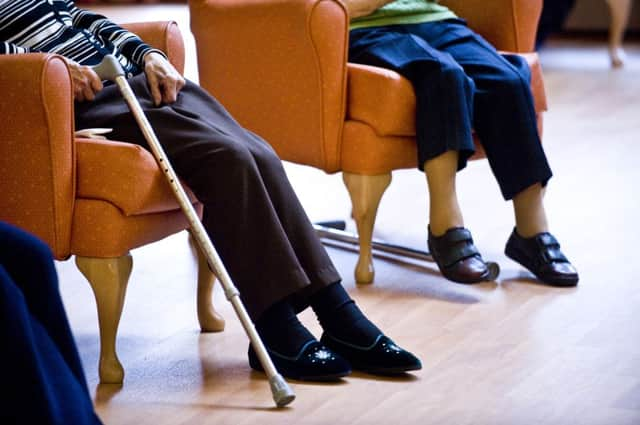Lyndsay Buckland: Care standards should be top priority


Scientists too are always looking at how we beat the ageing process at a molecular level, making our insides younger in the hope of avoiding the diseases of old age that start to make life unbearable for many.
The desire to avoid the traumas of ageing is entirely understandable every time you see a report detailing the failings of the NHS in caring for our elderly population. They rarely make for uplifting reading.
Advertisement
Hide AdAdvertisement
Hide AdHealthcare Improvement Scotland carries out regular inspections of our hospitals to chart their care of older people. While these often highlight areas of good practice, they also flag up examples of poor care, of patients being shunted around wards in the search for beds, or a lack of facilities to deal with those suffering from dementia.
Depressing reading can also be found in the Scottish Public Services Ombudsman reports looking at complaints made about NHS care.
All too frequently these include cases of elderly patients being left on trolleys for hours waiting for a bed, or being so poorly cared for on wards that they develop bed sores so severe they end up killing them. These cases are truly heart-breaking to read. Depressingly, they come up again and again.
So it came as some relief this week to read a report outlining improvements that have been made in the care of our most frail patients.
The Focus on Frailty initiative, led by Healthcare Improvement Scotland, has seen improvements in standards of care for those with often complex medical problems, as well as a reduction in the time they spend in hospital.
In one case a hospital also charted a reduction in deaths among older patients.
Such has been the success of the initiative that there are plans to spread the lessons learned across Scotland.
But when you look at the details of how these improvements have been achieved, it sounds – to the lay person at least – incredibly simple.
Advertisement
Hide AdAdvertisement
Hide AdThe projects involved using a screening tool to flag up patients who are frail and then provide them with a specialist assessment to identify their needs and provide care.
Many people may wonder why this wasn’t happening already. The answer probably lies in the high-demand, resource-limited nature of the NHS.
But if solutions really are this simple, nothing should lie in the way of them being adopted so our elderly patients get the treatment they deserve.